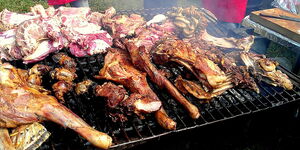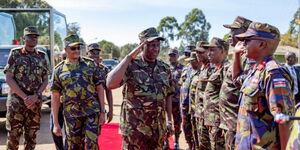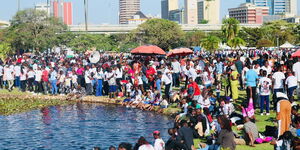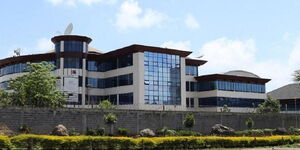The latest findings from a National Survey conducted by Ipsos has identified the main reasons why some Kenyans haven't registered for the Huduma Namba.
According to the data which was collected between 15th and 18th April 2019, only 34% of Kenyans have registered, with high registration being mentioned in Eastern (42%), Western (38%) and Central regions (38%).
Low registration was witnessed in North Eastern (32%), Nyanza (31%), Rift Valley (30%), Nairobi (29%) and Coast (29%).
Despite the initiative’s high awareness levels (over 90%), Kenyans' busy schedules (46%), the long queues (16%) and the perception that it is time-consuming (1%) were mentioned as the reasons affecting registration.
Other reasons cited were data protection issues (2%), some stated that they did not have the required documents needed for registration (3%) or they were not aware of its use (15%).
Furthermore, some respondents mentioned that they did not think the exercise was necessary (5%), others had no particular reason why they hadn’t registered (2%), while inadequate resources to handle the registration (1%) and lack of knowledge to understand the utility of the exercise (1%) were cited as the other reasons.
When asked about the deadline for registration, 47% of those who hadn’t registered stated that they didn’t know, 29 % gave the incorrect response, while 24% gave the correct response of May 18th.
Regarding the documents needed for the registration exercise, those who hadn't registered gave the following responses:
National ID (95%)
Birth Certificate (40%)
Passport (13%)
Driving licence (13%)
NHIF (11%)
NSSF (7%)
KRA pin (6%)
Don’t know (3%)
86% of those who are yet to register stated that they were aware of the nearest place where registration for Huduma Namba was taking place while 14 % were not aware.
When asked if they intended to register, 93% responded in the affirmative while 7 % stated that they weren't planning on doing so.
Among those who were not planning to register, 86% cited misinformation on the need for the same, 5% mentioned inadequate resources to handle the registration, 2% stated that they did not have required documents needed for registration, while 6 % gave no particular reason. 1 5% gave illness as a reason.
Drought and Famine
Apart from the Huduma Namba registration, Ipsos also conducted a survey about the most serious problem facing people in their locality (area of residence).
The general perception in the past has been that corruption is the most serious problem facing Kenyans.
However, from these findings, we observed that the most serious problem affecting Kenyans in their locality was drought and famine (47%).
According to the survey findings, the most affected regions were Eastern (57%), Rift Valley (54%), Nyanza (46%), Western (46%), Coast (45%), Central (41%), North Eastern (36%) Nairobi (31%).
Over 50% of Kenyans, however, feel that the county government and the national governments could have done more to mitigate the issue of drought and famine.
Other problems affecting Kenyans were the high cost of living (19%), lack of employment (15%), the gap between the poor and the rich (5%), poor roads and infrastructure (3%), crime (2%), corruption (2%) , poor leadership (2%), and drug abuse (1%).
Note:
The study was conducted telephonically with respondents drawn from different parts of the country. (Kenyan adults, aged 18 and above living in urban and rural areas).
The distribution of the population was done proportionately to the population living in each region.
The sample size was 1,527.
The sampling error was +/-2.51% with a 95% confidence level (Note: Higher error-margins for sub-samples)
The interview Languages used were English, Swahili, and Somali.
This study was fully funded by Ipsos.












